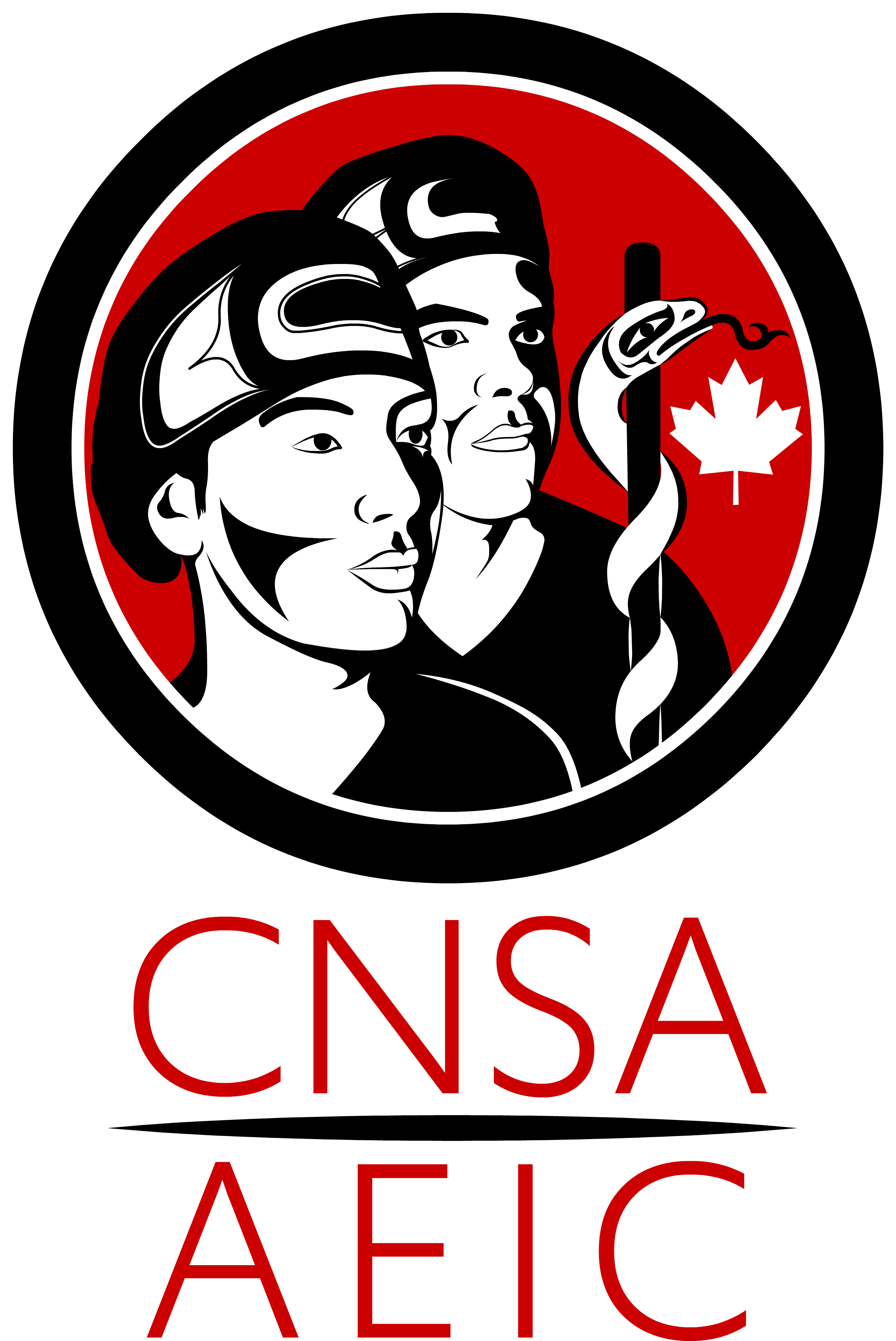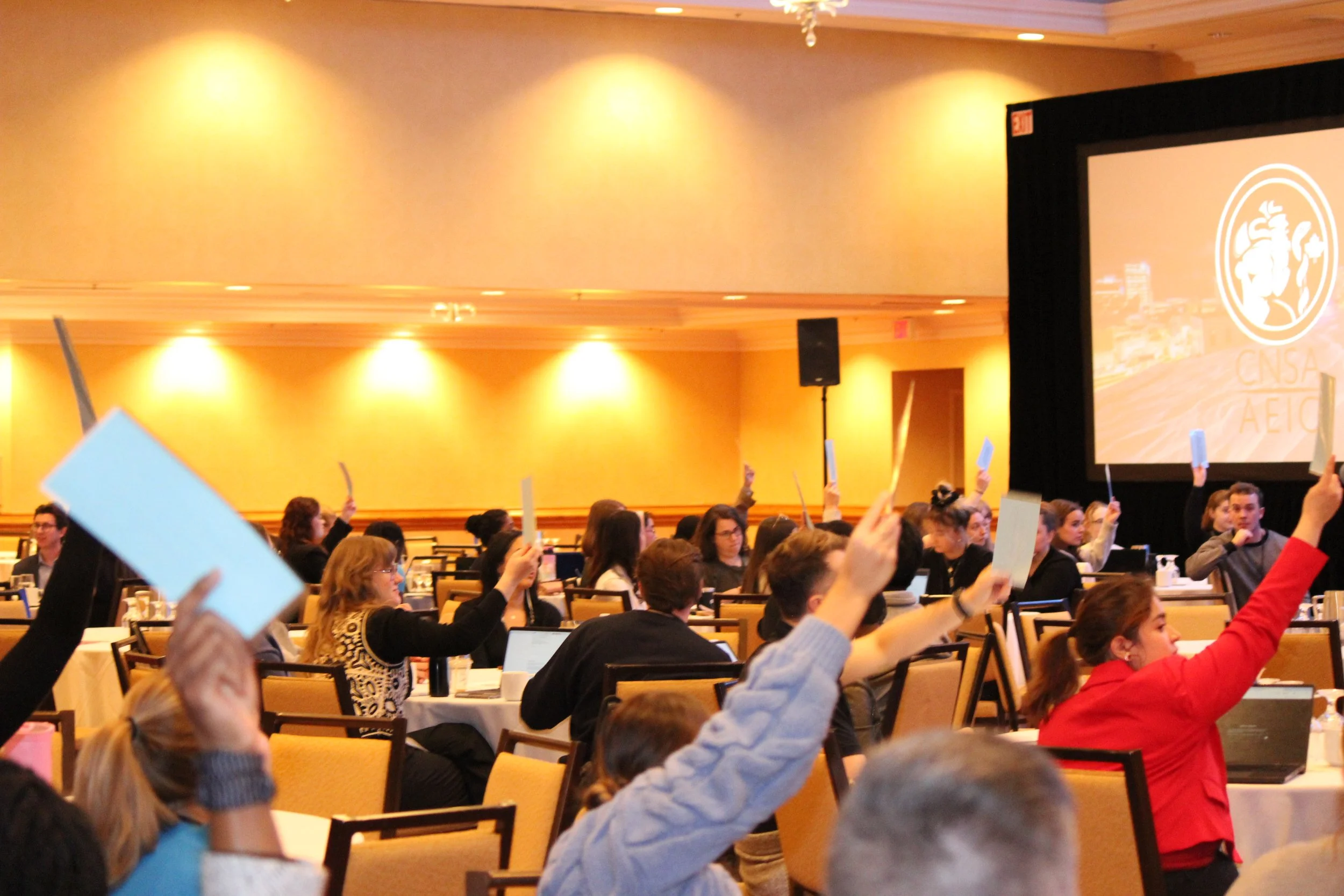Student Guide to the National Assembly
The National Assembly is the highest decision-making body of the Canadian Nursing Students’ Association (CNSA). It takes place every January alongside the National Conference and brings together student delegates from every chapter across Canada.
This is where members debate, vote, and set the direction of the Association. If you are attending as a delegate, or even just as a participant, it’s important to know what to expect and how to prepare.
📌 What is the National Assembly?
Decision-Making Hub → This is where CNSA policies, bylaws, resolutions and national priorities are debated and decided.
Democratic Process → Each member school has one vote, cast by their Official Delegate (OD).
Student Leadership → Elections for the Board of Directors (BOD) and Administrative Council (AC) happen here.
National Voice → Issues from local chapters and regions are elevated and addressed at the national level.
👥 Who Attends?
Official Delegates (ODs) → Voting representatives from each CNSA chapter school (one per school).
Associate Delegates (ADs) → Support their OD and may step in as needed.
Board of Directors & Administrative Council → Present reports, answer questions, and guide discussion.
General Members → Any CNSA member may attend, observe, and participate in discussion (though not in voting).
C-Level Stakeholders → Representatives from CNSA’s formal partnerships with CFNU, CNA, CASN (rotating seat on the Board of Directors).
National Partners → Organizations that collaborate with CNSA on advocacy, education, and professional development.
Sponsors & Supporters → Conference sponsors and allied organizations often attend to connect with students and showcase opportunities.
🗳 What Happens at Assembly?
Reports & Updates → National leaders present updates on CNSA’s work (finance, governance, advocacy, communications, etc.).
Motions & Debate → Delegates present motions on new policies, bylaw changes, or initiatives. These are debated, amended, and then voted on.
Elections → Members run for national positions. Candidates give speeches, answer questions, and delegates vote.
Strategic Decisions → The Assembly sets CNSA’s priorities for the upcoming year, shaping national advocacy efforts.
🧾 Preparing for the National Assembly
1. Know Your Role
Official Delegates (ODs): Review your school’s input before Assembly—you are voting on their behalf.
Associate Delegates (ADs): Support your OD and be ready to step in if needed.
General Members: While you may not vote, your voice in debate and caucuses still makes an impact.
2. Do Your Homework
Read the Assembly Package before arriving (motions, reports, candidate bios).
Meet with your chapter to clarify your school’s stance on motions and elections.
Familiarize yourself with CNSA’s bylaws and policies, as they guide decisions.
3. Learn the Rules of Debate
CNSA follows Bourinot’s Rules of Order, a simplified parliamentary system commonly used in Canada.
This ensures fairness, respect, and efficiency during debate and voting.
Key basics include:
Motions: Formal proposals put forward for decision.
Amendments: Changes suggested to improve a motion.
Speaking Order: Delegates are recognized by the Chair before speaking.
Voting: Each school casts one vote through its OD.
Tip: If you’re new to parliamentary procedure, don’t worry! The Chair and Governance team guide delegates through the process step by step.
🚀 Tips for Success
Speak up → Don’t be afraid to ask for clarification during debate.
Stay engaged → Assembly sessions can be long—bring water, snacks, and take notes.
Network → Connect with delegates from other schools; you’ll learn a lot from their experiences.
Think big → The decisions you make here affect nursing students across the country.

